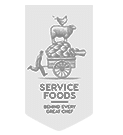
Challenges
Through a modern supply chain, Bondi Sands mission is to bring confidence and the iconic Australian lifestyle to their worldwide community all year round. As manufacturers of the world’s leading self-tanning brand, owned and made in Australia, Bondi Sands, distributes to over 45,000 stores worldwide. Their current physical retailer footprint crosses 14 countries and expands to 95 countries online – bringing Australia to the rest of the world. This footprint is expected to grow over the next few years at a rapid pace.
Bondi Sands set out on a supply chain transformation as a key business enabler to support their significant business growth. With an increased product mix, new operating model, and constant supply chain industry challenges, Bondi Sands needed a robust solution.
As part of their technology transformation, Bondi Sands evaluated their current business structure to identify the following challenges in their current practices.
- Inventory planning: reactive and manual, lack of control, led to stock outs.
- Manual / Excel driven reporting: low visibility of service levels, lagging reaction, prone to errors.
- Data integrity: highly compromised, leading to errors.
- Unstructured demand forecast: leading to high inaccuracy.
- Highly manual order management: overburnt and inadequate ERP system.
These challenges lead to missed opportunities and impacted the speed of their business growth.
Inventory Planning
Bondi Sands wanted to increase inventory forecasting accuracy.
Increase Agility
Bondi Sands needed to improve their response time to supply chain disruption.
Forecasting Accuracy
Bondi Sands wanted improved data integrity to develop more accuract forecasting plans.
Bondi Sands – Leveraging Logility for Inventory Optimization
Solutions
Bondi sands selected the Logility Digital Supply Chain Platform as their end-to-end supply chain planning system.
“The implementation team transformed the end-to-end supply chain planning system, rendering it not just efficient but also readily deployable, scalable, transferable, and adaptable within the framework of Bondi Sands.” – Stefano Gambarotto, Bondi Sands Head of Operations
They leveraged Demand Optimization, Inventory Optimization, and Supply Optimization solutions to achieve:
- Dynamic optimisation and auto-updating based on service target and margin contribution.
- Clear set of visual, effective & real-time KPIs systemically generated.
- One source of truth and full alignment of data set across the business.
- Data driven and smart algorithm-based sales forecast, integrating multiple data sources from internal and external environments.
- Optimised supply chain flows in both upstream & downstream.
- Fully integrated ICT ecosystem, with both upstream and downstream external business partners outperform business expectations.
Results
By implementing an end-to-end supply chain planning system, they achieved transparent & real-time inventory projection, optimized their inventory policy, made smart supply decisions based on business profitability, and have alignment of their business plan across regions & functions.
Key wins realized:
- Transparent & real-time inventory projection
- Optimized inventory policy
- Smart supply decisions based on business profitability
- Alignment of business plan across regions & functions
- Voted a top three vendor for stock on shelf by large retail client
Technology Transformation 2.0
Bondi Sands is just getting started with their business growth and advancement. With their new technology ecosystem in place, they are moving forward with phase two of implementing Logility to enable even greater insights. During this phase Bondi Sands will use Logility to:
- Elevate system automation.
- Integrate external environment data into planning ecosystem.
- Complete supply chain integration with upstream vendors.
- Increased real-time visibility with Tier-2 suppliers and upstream strategic partnerships.
Ultimately, Bondi Sands will achieve their business growth goals of further market penetration, a larger portfolio, and entry into new countries.














